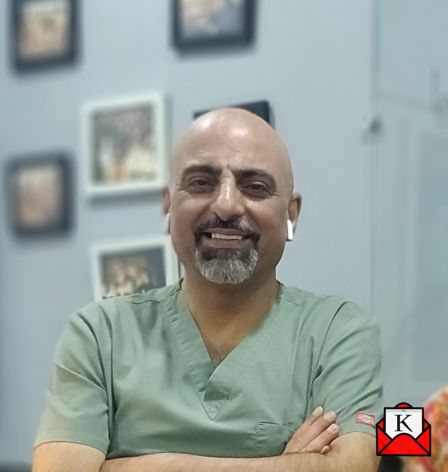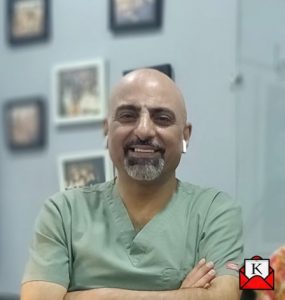Guest Blog- Minimally Invasive Approach To Treat Head and Neck Cancers


Head and Neck cancer, especially Oral and Oropharyngeal cancer cases in India are rising, and India is already leading in numbers amongst other countries. India alone has a greater number of head and neck cancer cases than the whole world put together. Timely detection of such cancers makes it curable, but unfortunately, the survival rates are very poor in India in comparison to the western world. Such is the case with cancers of the head & neck, which are the most preventable types of cancers, are not only easy to detect but also treatable.
As per the recent data provided by Globacan 2018, head & neck cancer cases attributed to over 24% of all the cases with a total of 2.75 lakh new cases registered last year. Further the ICMR’s National Cancer Registry Program data suggest that one in three cancer cases in India belong to one of the BIMARU states (Bihar, Jharkhand Madhya Pradesh, Chhattisgarh, Rajasthan and Uttar Pradesh). In 2017, 15.17 lakh cancer cases were recorded by various cancer registries in India against 14.5 lakh cancer cases in 2016. Of these, 5.75 lakh cases belonged to Bihar, Madhya Pradesh, Rajasthan and Uttar Pradesh. Among the four BIMARU states, UP saw a maximum of 2.5 lakh cancer cases, which is the maximum in the country attributing to the consumption of pan masala and tobacco.
Earlier conventional methods of treatment only emphasized on treating the cancer growth and radical removal of the disease, unconcerned about the associated morbidities including, disfigurement, bent face, scars, non-aligned teeth, drooping shoulders etc (even after a reconstructive surgery). With the advent of novel therapies and advanced treatment modules, the treatment outcomes even for stage IV head & Neck cancer have better outcomes in a minimally invasive way. Proving to be a breakthrough in treating such cancers, Trans-Oral Robotic surgery (TORS) is a minimally invasive robotic surgery for the treatment of the cancers in the oral cavity with high precision and no disfigurement. TORS have clinically demonstrated the excellent survival rates and favorable functional outcomes.
Trans-Oral Robotic Surgery: A Minimally invasive way of treatment
Trans-Oral Robotic surgery is a relatively new approach for the removal of cancer cells even in cases that are hard to access. Making use of a robotic arm, endoscopic retriever, removes all the cancer cells in the throat and oral cavity, without the need for incision thereby preserving the adjacent healthy cells and tissues. Difficult to reach areas in the oral cavity include base of the tongue, until in the bottom of the tonsil, which has not only proven to be a boon for the patients but also a game changer for the surgeons.
Using the robotic systems to guide the surgical tools, allows for more-precise movements in narrow spaces and the capability to work in around the corners. This helps in preservation of vital neurovascular tissue and healthy muscular which helps the patient to swallow easily and get discharge home sooner.
Post treatment the patient is kept under close monitoring for any vital signs of bleeding, infection or any other complication and the patient can be discharged immediately.
TORS – Advantageous over Conventional treatment methods
Being robot assisted surgery, the precision of the targeted area is very high, and its minimally invasive nature prevents one from undergoing an open surgery. Initially the treatment modules for such cancer involved chemotherapy and radiation therapy, but if the cancer is not being detected at a very early stage, not much difference I nthe outcomes were observed, when an open surgery remained the last resort for the patient. Unfortunately before the advent of TORS, the conventional surgical method which was completely invasive caused the splitting of jaw bones (Mandible) exposing the base of the tongue for treatment, leaving many with disfigurement even after a reconstructive surgery. However, this minimally invasive technique is 100% safer and can be performed to remove recurrent tumours in the mouth and throat.
What is the future of TORS in India?
Trans-oral robotic surgery can be used to treat cancers in the tongue, throat, mouth, larynx, pharynx, and other locations in the head and neck cavity. Advancements in the surgical equipments have made it possible to reach these tumours using the robotic technology. TORS has drastically improved the way doctors treat head and neck cancer patients, completely removing the tumours while preserving speech, swallowing ability and resulting in quick and better recovery without any major scars. It is widely accepted by aware doctors and patients in the country.
About the author- Dr Sameer Kaul, Sr Consultant Surgical Oncology & Robotics,President, bcpbf-The Cancer Foundation
